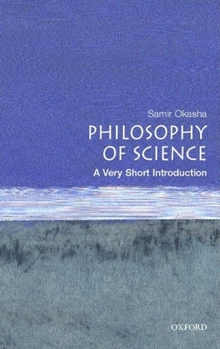Philosophy of Science: A Very Short Introduction
(Part of the Very Short Introductions Series, Oxford's Very Short Introductions series Series, and Very Short Introductions (#67) Series)
Select Format
Select Condition 
Book Overview
Customer Reviews
Rated 5 starsExcellent Introduction to the Subject
In my opinion, this book is probably among the best available introductions to the philosophy of science. It is also suitable for review purposes for those who already have some familiarity with the subject. The book manages to cover much ground in a short space because it is written very concisely, yet it is also easy to read because the writing style is very clear and straightforward. I warmly recommend this book without...
2Report
Rated 5 starsExcellent introduction
I read this book as an introduction to the philosophy of science to help me as part of my degree and found it has adressed all the necessary key issues and summarised them with clear and simplistic explanations that are easy to understand, especially for the non-philosophical readers! The straightforward explanation approach that the author uses also means that some of the more complex issues are compared and argued in a similarly...
1Report
Rated 5 starsA great little primer to the Philosophy of Science
What this book claims to do, it does well. It is in the Oxford "Very Short Introductions" series, and so does not pretend to be anything but a cursory introduction to the field of Philosophy of Science. Given that caveat, the book is well-written, great fun to read, and is still likely to give us mere "laymen" in the field something to think about. Okasha assumes some scientific and philosophical knowledge on the part of...
3Report
Rated 5 starsAnother Good VSI Title
Yet another excellent entrant in the VSI series. Okasha, Lecturer in Philosophy at the University of York, gives a well-organized quick tour of the main topics in the Philosophy of Science.Starting with an introductory chapter on "What is Science", he takes the reader on a tour of "Scientific Reasoning", "Explanation in Science", "Realism and anti-Realism", "Scientific Change and Revolutions". He then adds a chapter on three...
1Report
Rated 5 starsa great introduction
This is an excellent short introduction to philosophy of science. It's clearly written and very interesting. This would be an ideal first thing to read on the topic.
0Report













